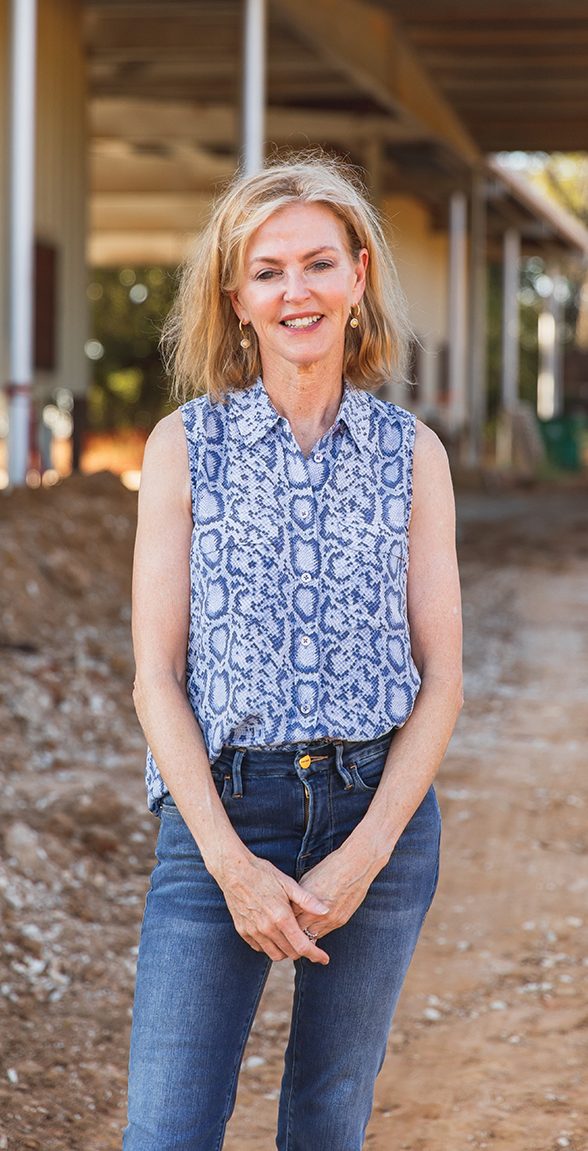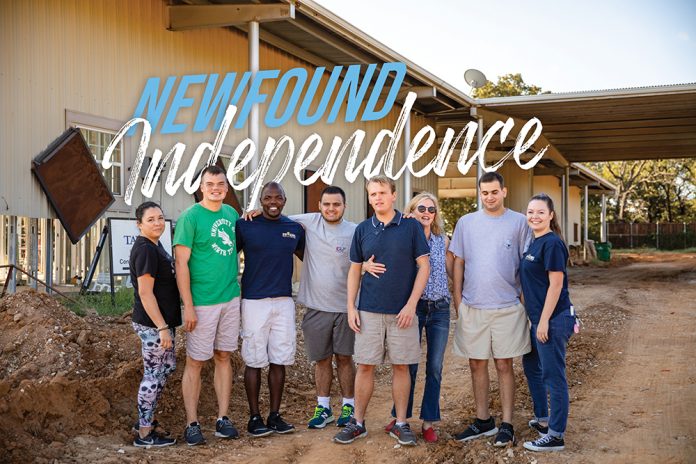The transition into adulthood can be a difficult one, even for those who are seemingly well-prepared and capable both mentally and emotionally of tackling life’s daily challenges. However, for young adults with autism spectrum disorder (ASD) or who have been diagnosed with other neurodiversities, the future can be fraught with uncertainty as they age out of various school-based support services and programs. Meanwhile, as parents and other caregivers age or begin to develop health problems, they may no longer be able to provide their adult children the same level of support within the family home that is required so that they may live a purposeful and successful life. Also, some autistic adults may wish to live and work independently as others their age do.
Unfortunately, as Dr. Debra Caudy discovered firsthand, the options available for autistic adults are extremely limited, especially when you consider that individuals with the disorder comprise two percent of the population in communities around the world. Her 21-year-old son, Jon, was diagnosed with the disorder as a toddler and continues to live at home. A former oncologist, she left her practice 17 years ago to devote herself to supporting and advocating for the youngest of her four children. During Jon’s teen years, Dr. Caudy says she and her husband, Dr. Clay Heighten, also a retired physician, began considering options for their son’s future. They wondered whether he would ever be able to find a place to live “where we felt that he would be engaged, have friends, be loved on, have a job and just lead a wonderful adult life.”
She researched supportive housing communities and learned about a limited number that operate in cities around the nation. Not wanting to relocate from North Texas, Drs. Caudy and Heighten put the wheels in motion to develop programming and services, as well as design an entire residential community tailored specifically to autistic and neurodiverse adults. In 2015, the couple teamed with other area families affected by autism and founded 29 Acres, a nonprofit organization whose support services largely cover clients in Collin and Denton counties. Dedicated to providing services and safe housing for autistic adults age 18 and older, the first phase of this sizeable residential development located in the town of Cross Roads is scheduled to welcome 32 full-time residents next summer.
Upon receiving an autism diagnosis for their child, long-term financial and residential planning usually is not atop parents’ list of priorities–but it should be. Especially since a study by Drexel University revealed that the cost of living for high-functioning individuals with the disorder is around $60,000 annually. That number jumps to $88,000 or more for those whose support needs are greater. “What usually happens is that so many parents use all of their funding getting the services their kids need as children to make strides and make progress,” Dr. Caudy says. By the time they enter adulthood, there is no money left. “You have to start planning for the future and there are various ways you can do that,” she adds. She recommends consulting with a financial planner or attorney with special needs experience soon after a diagnosis is made.
Although services and support programs for autistic youngsters are plentiful, those for adults are lacking. “When kids turn 21, there is just nothing available,” she says. “What we have learned is that almost everyone with autism requires some type of ongoing support to be successful.”
 As the president of 29 Acres, Dr. Caudy says that nearly 90 percent of adults with autism are either under or unemployed, and about the same number reside at home with their parents or other family members. “It just should not be that way. These individuals have so many strong skill sets and they want to work. They want to be contributing, productive, engaged members of their communities. They also do not necessarily want to live with mom and dad as they transition into adulthood.” The demand for services and housing “is enormous,” she says. “And, the supply is so low.”
As the president of 29 Acres, Dr. Caudy says that nearly 90 percent of adults with autism are either under or unemployed, and about the same number reside at home with their parents or other family members. “It just should not be that way. These individuals have so many strong skill sets and they want to work. They want to be contributing, productive, engaged members of their communities. They also do not necessarily want to live with mom and dad as they transition into adulthood.” The demand for services and housing “is enormous,” she says. “And, the supply is so low.”
Last year, 29 Acres rolled out its academy, a two-year “transitional residential program.” Nine high-functioning students over age 18 live in rented homes in the Paloma Creek subdivision in Little Elm. Modeled after a similar program in Phoenix, Ariz., students spend their days at the University of North Texas campus in Denton attending comprehensive life skills and career classes led by one of the organization’s instructors. In the evening, they return to their rental house, which is staffed until 10 p.m., to practice implementing what they learn in the classroom and community in their first home. The house acts as a sort of independent living lab. Students also participate in work experiences while being coached by members of 29 Acres’ staff. After graduating from the program, they should be equipped to live independently at a location of their choice, find employment or, if they choose to do so, further their education. Plans are to expand the program next year to include an additional 16 “freshman” students.
Earlier this year, the enrich program was launched to serve a broader range of adults on the autism spectrum. Staffers and clients meet in Denton, near Texas Woman’s University, to meet on the city’s square, take art and yoga classes and participate in other activities that simulate typical adult life. “It takes place in the community because that is where we spend our time as adults,” Dr. Caudy says. Also, 29 Acres organizes several social outings monthly that are open to all autistic adult members of the public. They enjoy free and low-cost activities, including picnics, painting classes and visits to amusement centers, among others. “It is just a way to be together, to be out … so people know we are part of all of our communities.” This summer, the organization hosted a camp, during which members spent their days performing volunteer work and enjoying outdoor activities. Recently, 29 Acres was approved as a Texas Workforce Commission vendor, which Dr. Caudy says should help assist its clients in locating employment opportunities.
When it opens in 2020, 29 Acres’ supported living community in Cross Roads will feature eight houses. A combination of two-bedroom duplexes and four-bedroom quadruplexes, the dwellings are currently under construction on the grounds of a facility where polo horses formerly were trained. The barn is being transformed into an amenity center complete with a fitness center and multipurpose area. Other amenities planned for the community, which will be security guarded, include walking trails, community gardens and a swimming pool. Regular social activities will be held, and scheduled transportation will be available for residents. Year-long leases for autistic and neurodiverse residents age 18 and older will range from $2,900 to $3,100 per month, which includes a community fee that covers the costs of amenities and related residential services.
“We are serving a broad range. Somebody who needs minimal support can live there and somebody who needs more support, like my son, can live there,” Dr. Caudy explains of the anticipated demographics of 29 Acres’ residents. While the organization will offer its autism support services to residents, she stressed that those living onsite will be welcome to utilize outside service providers. “We want everybody to get some type of support if they need it, because we do not want people sitting in their homes with nothing to do. What is important to us is that everybody who lives here has a plan that works for them, that is going to support them so they are successful.”


